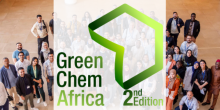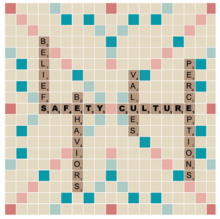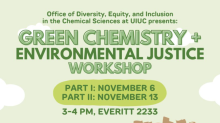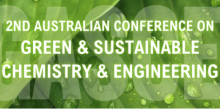Navigating Career Paths & Opportunities in Green Chemistry and Sustainability
This free, virtual event is designed to empower undergraduate and graduate students with insights and connections to pursue meaningful and impactful careers in green chemistry and sustainability. Participants will hear from and interact directly with industry leaders and academics about career pathways, internship opportunities, and co-ops while building their professional networks.








